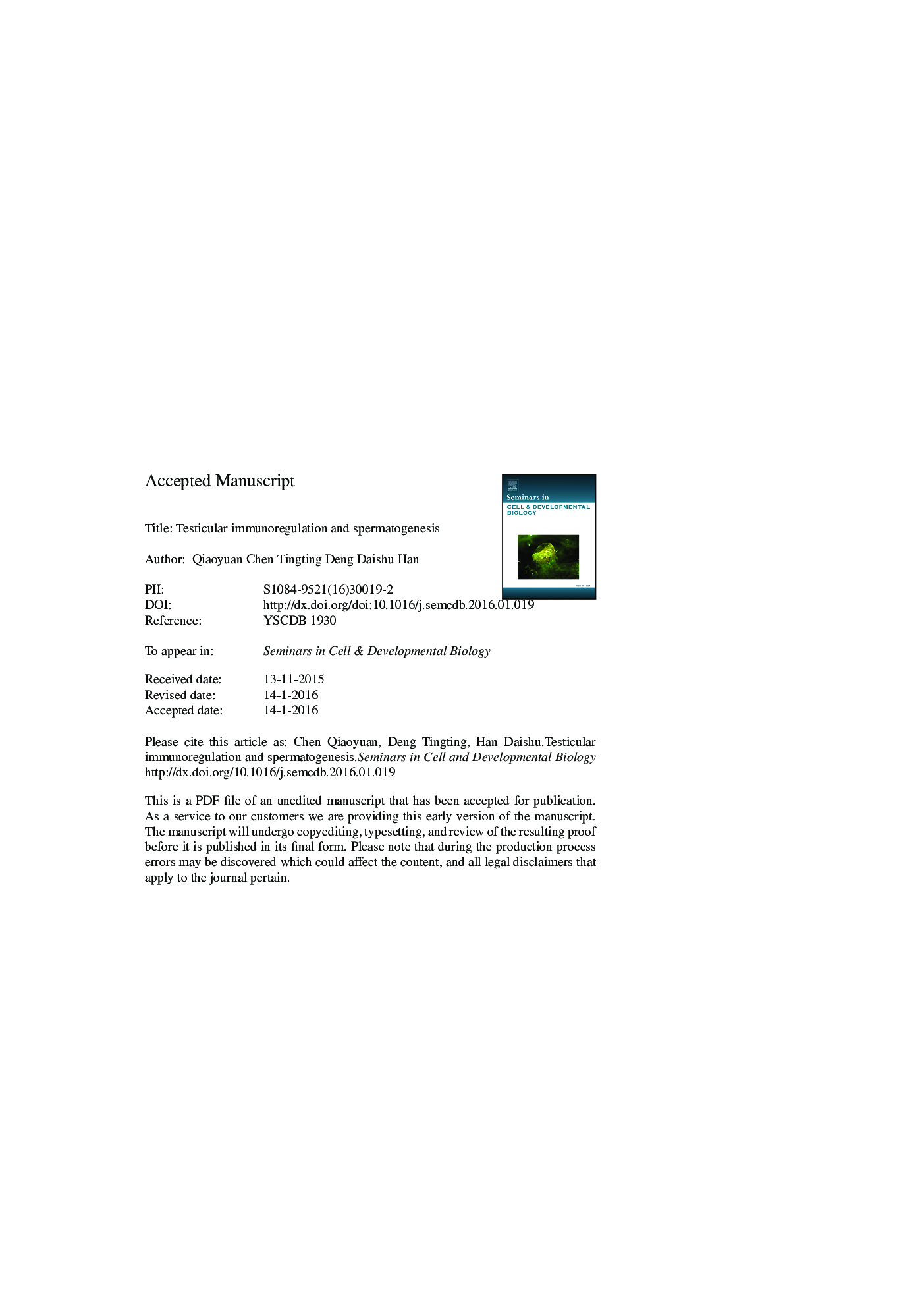| Article ID | Journal | Published Year | Pages | File Type |
|---|---|---|---|---|
| 5534980 | Seminars in Cell & Developmental Biology | 2016 | 34 Pages |
Abstract
The mammalian testis possesses a unique immune environment that is essential for testicular function. The testis is a remarkable immunoprivileged site that protects immunogenic germ cells from the detrimental effects of immune responses. However, the testis can be infected by various microbial pathogens. To overcome the immune privilege and enable testicular defense against microbes, the testis adopts local effective innate immune responses to microbial infections. The mechanisms underlying the testicular immune privilege have been investigated for several decades and the innate defense system in the testis is being revealed based on the identification of pattern recognition receptor-initiated innate immune responses in testicular cells. The coordination between immune privilege and local innate immune responses is critical in the maintenance of testicular immune homeostasis. Disruption of the testicular immune homeostasis may lead to orchitis and impair spermatogenesis, an etiological factor of male infertility. Dissection of the immunoregulatory mechanisms in the testis can aid in establishing preventive and therapeutic approaches for orchitis. This review discusses current understanding of the mechanisms which underlie the testicular immunoregulation and its effect on spermatogenesis.
Keywords
RLRLPSMuVIFN-βMDA5PAMPTyro3PRRIPS-1BTBEAOIRF3RIG-IOAS1MAPKMx1TRIFpathogen-associated molecular patternsTAMInterferon regulatory factor 3lipopolysaccharideblood–testis barrierSTINGMumps virusMelanoma Differentiation-Associated protein 5poly (I:C)polyinosinic-polycytidylic acidretinoic acid-inducible gene Igrowth arrest-specific gene 6mitogen-activated protein kinasesGas6RIG-I-like receptorPRR, Pattern recognition receptor
Related Topics
Life Sciences
Biochemistry, Genetics and Molecular Biology
Cell Biology
Authors
Qiaoyuan Chen, Tingting Deng, Daishu Han,
